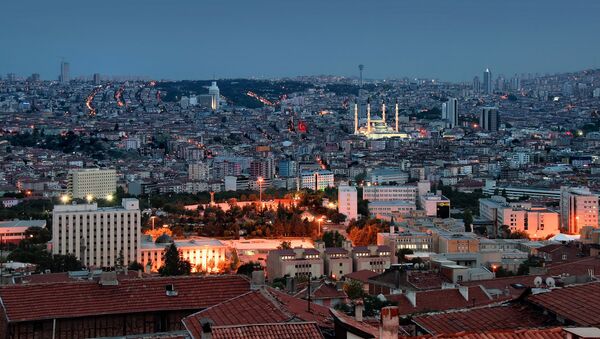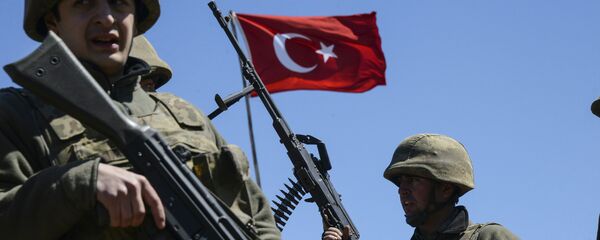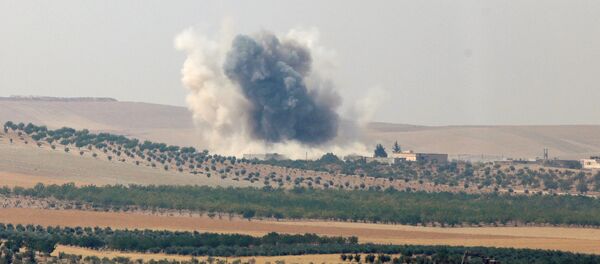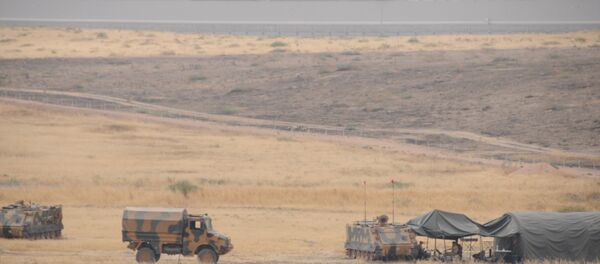Atlioglu outlined three major goals that Turkey is pursing in the region. These involve providing security in the border region, liberating the town of al-Bab and preventing Kurdish forces from advancing to the west of the Euphrates.
Turkey will only be able to reach its objectives in northern Syria "if it has substantial military presence" across the border, he said. "Naturally, this has to happen in coordination with the Syrian government, Russia, the United States and Iran, taking into account the principle of Syria's territorial integrity and understanding that the military operation is temporary."
If Turkey decides to pursue its former strategy and act alone, the former balance of power will be restored in the border territories in three to five months, the analyst added. The 100-kilometer-long stretch of border has largely been controlled by Daesh, al-Nusra Front and other terrorist groups who used the area to funnel weapons, supplies and recruits to the Syrian battlefield.
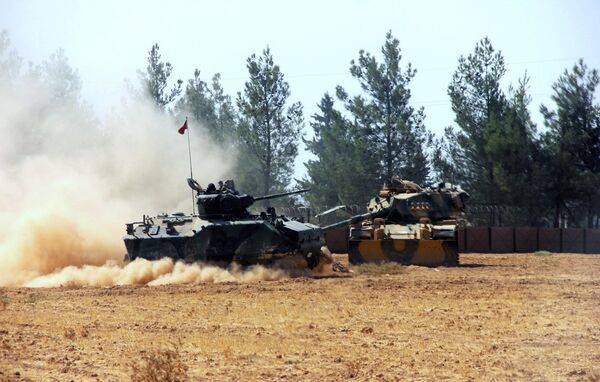
Ankara's military incursion in northern Syria will not necessarily make things better.
If Turkey establishes a so-called buffer zone leaving Free Syrian Army in charge, "it is highly unlikely that they will manage to keep Jarablus under control," Atlioglu noted. "These militias lack discipline, a clear-cut military strategy and common command structures."
"It is a well-known fact that the original Free Syrian Army collapsed two years ago. The FSA is currently an umbrella organization that includes multiple unrelated groups. Their numbers are not high, approximately 1,500 armed militants. If Turkey creates a buffer zone and pulls its troops out, these militias will most likely be unable to hold their ground in northern Syria."
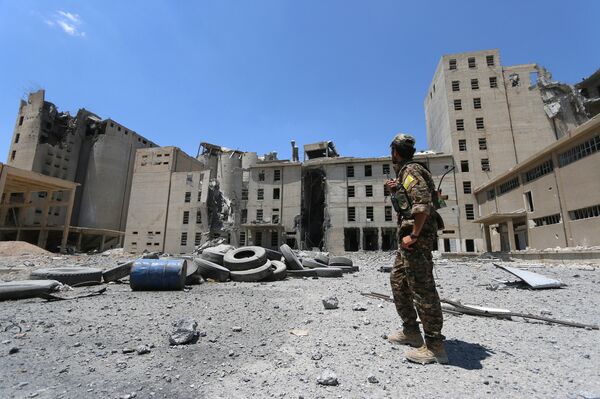
This is not the only concern that Turkey must address with regard to its operation.
This is where Turkey's interests clash with those of the Kurds. As a result, earlier this week, the Turkish military shelled Kurdish forces in Manbij.
In addition, "if Ankara chooses to carry out an operation in al-Bab, it will face opposition from Russia and Syria," the analyst observed. Furthermore, Turkey will not be able to establish a buffer zone "without Russia's consent."
"To make its activities legitimate, Turkish authorities need to maintain contacts will all stakeholders with regard to fighting against terrorism and protecting the territorial integrity of Syria." Atlioglu further said that Turkey will "have to take into account and respect interests" of other major players.
